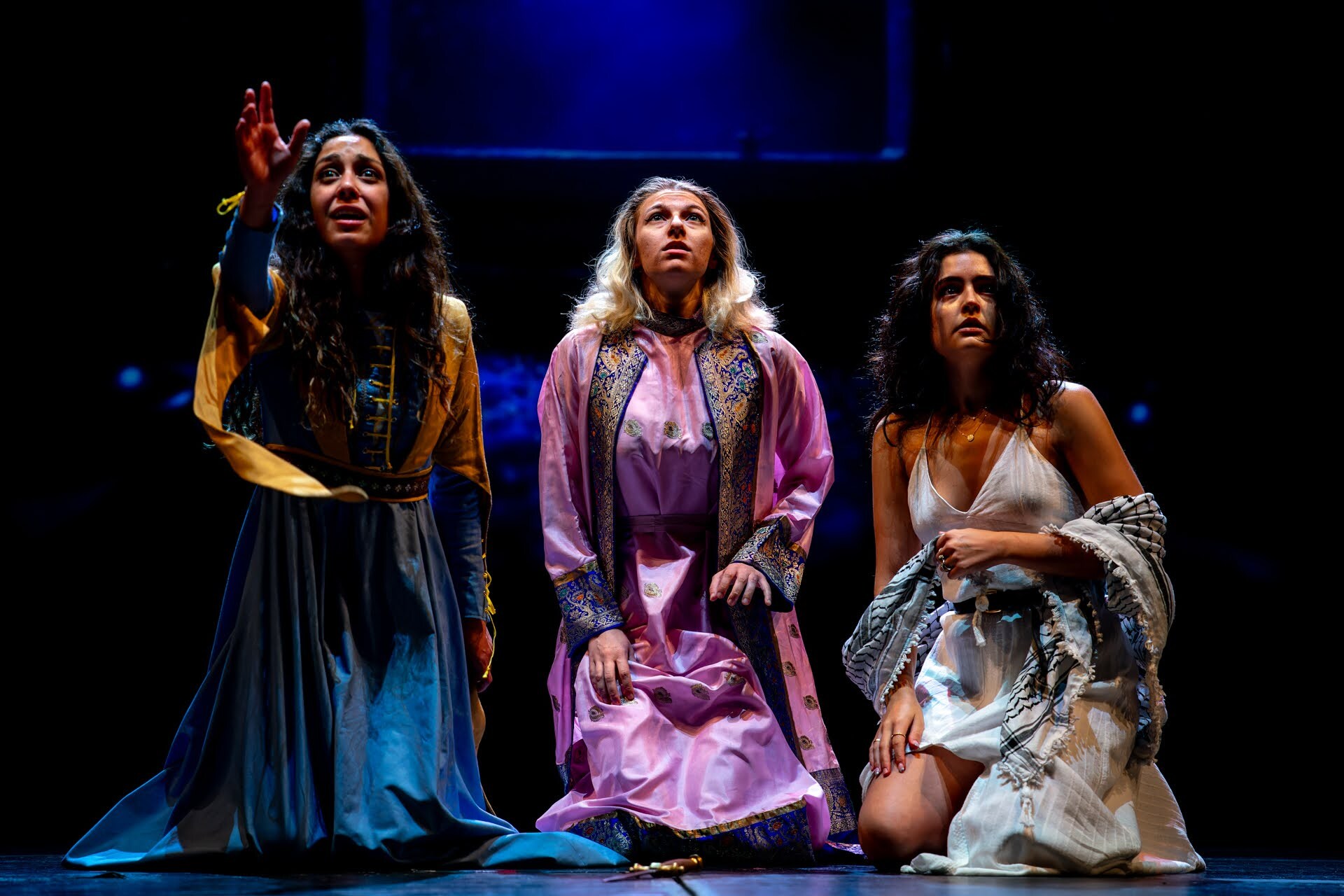
One bright evening last summer, just off the cobblestone streets of Prague, Fawzia Istrabadi ’20 began performing her adaptation of Romeo and Juliet at the Estates Theatre, on the same stage where Mozart premiered some of his most famous works.
The three-minute play focuses on Juliet’s perspective and was delivered in both English and Arabic. It might have been the first time that Arabic has been spoken on the stage, despite the theater’s centuries of history. It was also the culmination of months of work.
Istrabadi adapted the script and acted in the play, which was directed by Guy Roberts, a member of the Prague Shakespeare Company, and translated into Arabic by Adham Sayed. Istrabadi was accompanied on stage by two other Juliets, Bridget Stephen Bullard and Hind Jadallah-Karraa.
Istrabadi is in her third year of an MFA program in Shakespeare and performance at Mary Baldwin College in Virginia. The idea for the Romeo and Juliet adaptation initially stemmed from Istrabadi’s thesis work, though Shakespeare and acting have always been an important part of her life.
When Istrabadi was 6 months old, her parents took her to her first Shakespeare play. When she was 2, her grandmother, who was an expert in translating Shakespeare’s works to Arabic and taught at a university in Baghdad, gave her a book of Shakespeare’s complete works. As Istrabadi puts it, “Shakespeare has always sort of been in my blood.”
As Istrabadi worked on her thesis, which examines Islamophobia and Orientalism on the modern Shakespearean stage, she began to imagine a version of Shakespeare that incorporated more diverse voices, “because in theater generally, you don’t see a lot of Arabs, Arab Americans, people of that diaspora onstage, especially when you start getting into classical theater,” she said.
The idea also came from her own personal experience as an Arab American growing up in rural Indiana. “I’ve been told, ‘Oh, well, you don’t look like a Juliet,’” she said. She hopes that by showing three Arab Americans playing Juliet that, “it just maybe broadens people’s worldview a little bit.” Or, at the very least, she said, helps people reimagine “who can play what or what a character can or can’t be.”
As she adapted the script, it was also important for her to portray the two families, the Capulets and the Montagues, as equals, despite their perceived differences. She had the perfect example from her own life: Her mother is Catholic, and her father is Muslim.
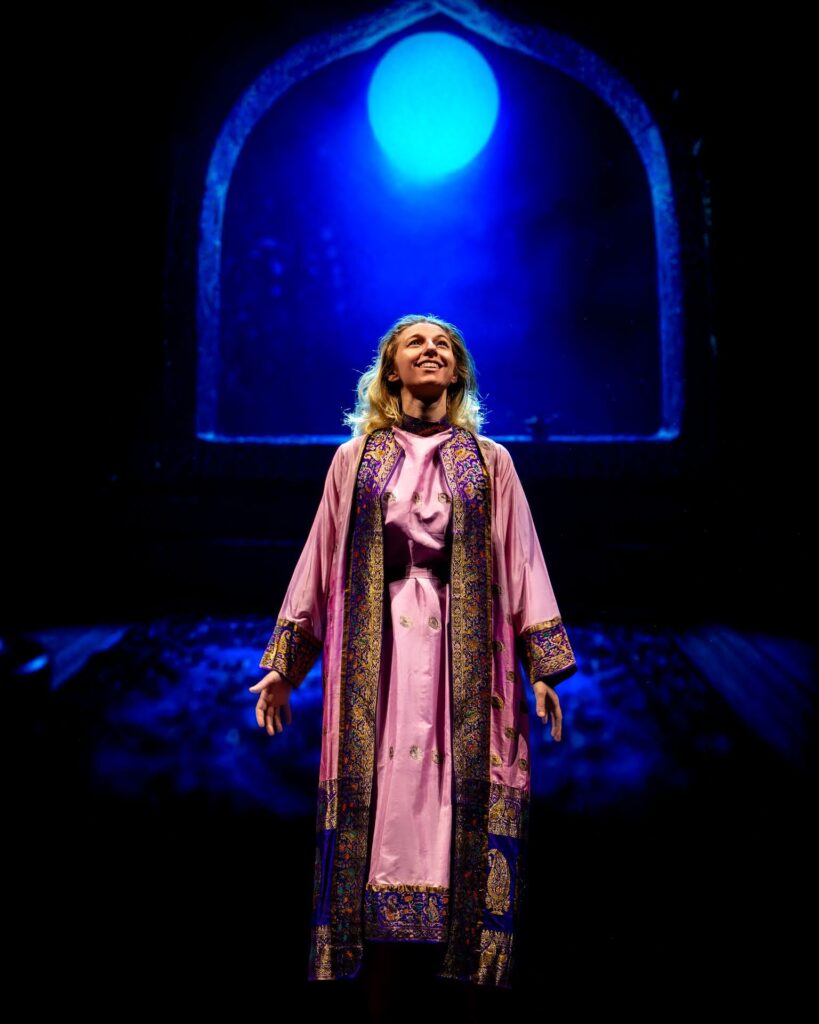
“Fawzia is not just an actor. Fawzia is also a historian and a dramaturg and is really interested in everything about the story.”
Lynne Perkins Socey
“I know very personally what the mix between Irish and Slovak culture and an Iraqi Middle Eastern culture can look like, and how great it is,” she said. “And I feel like I was very lucky the way that I grew up, in that there was an example of what the world can look like when cultures can interact and share and find that they have a lot in common.”
At Earlham, Istrabadi majored in theatre arts, and she said being part of a smaller theater program and college gave her a strong foundation for the work she’s doing now. “You can’t just be an actor,” she said. “You have to be able to do a lot of things.” The department’s emphasis on collaboration also helped in the process of adapting a script to three Juliets. “Because of how key collaboration was in my Earlham theater experience, it’s become really easy to transfer that and recognize the bigger picture, the art, is always more important than personal ego,” she added.
Lynne Perkins Socey, a professor of theatre arts, said that Earlham’s theater program encourages its students to think about the impact of the story they’re telling. “Why are we telling this story to this audience today? How is this relevant to our lives?” she said. “We’re offering this gift of perspective so that hopefully audiences will think about some things they haven’t thought about or have a little bit more empathy for somebody. That’s what a classic story is for.”
Perkins Socey believes Istrabadi’s ability to look closely at those questions has helped her succeed in theater.
“Fawzia is not just an actor. Fawzia is also a historian and a dramaturg and is really interested in everything about the story,” Perkins Socey said. “Fawzia approaches theater as an art form and an intellectual form of humans sharing thoughts. That’s a large part of what is driving Fawzia in the success that she’s having right now.”
Istrabadi recently expanded the three-minute version of her play into a 20-minute performance for the Blackfriars Playhouse Conference in Staunton, Virginia. Her goal is to turn the adaptation into a fulllength production. “Juliet Capulet is one of Shakespeare’s most incredible characters, arguably one of his most complex heroines. And so, with this lens, she is this fully fledged Arab, Middle Eastern woman,” Istrabadi said. “I’m trying to keep finding ways to highlight the Arabic language and uplift Arabs.
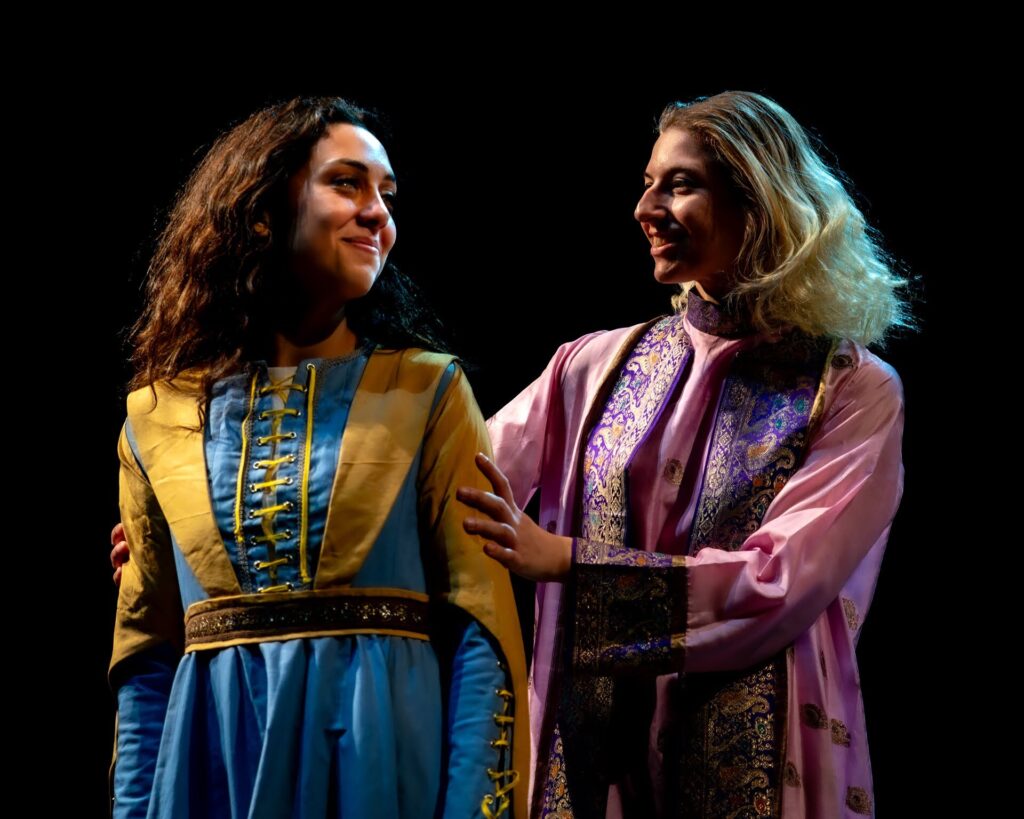
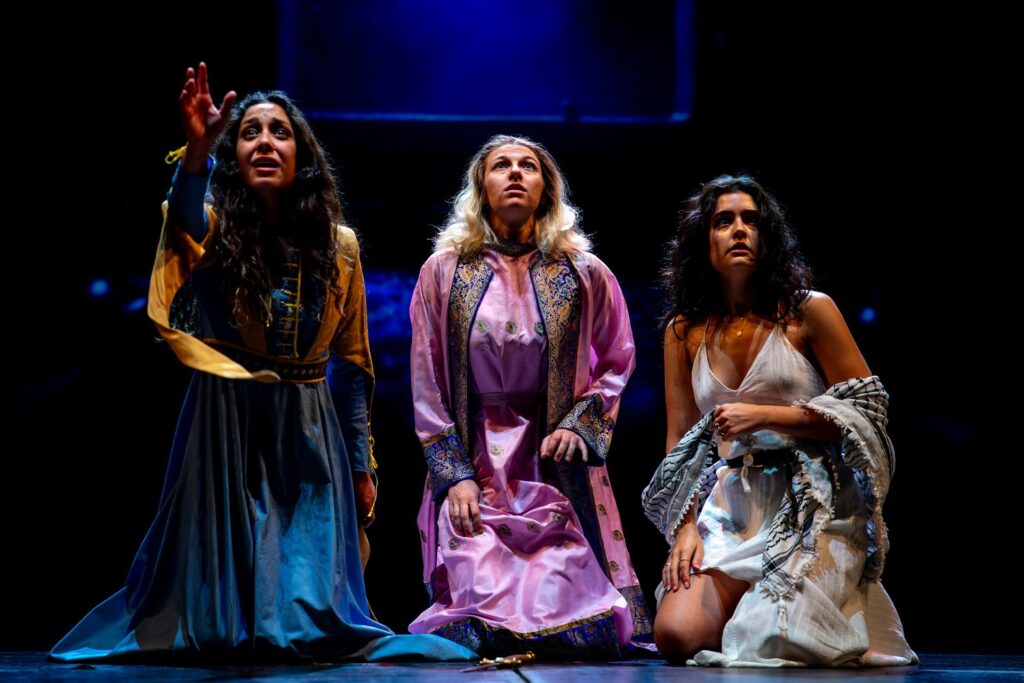
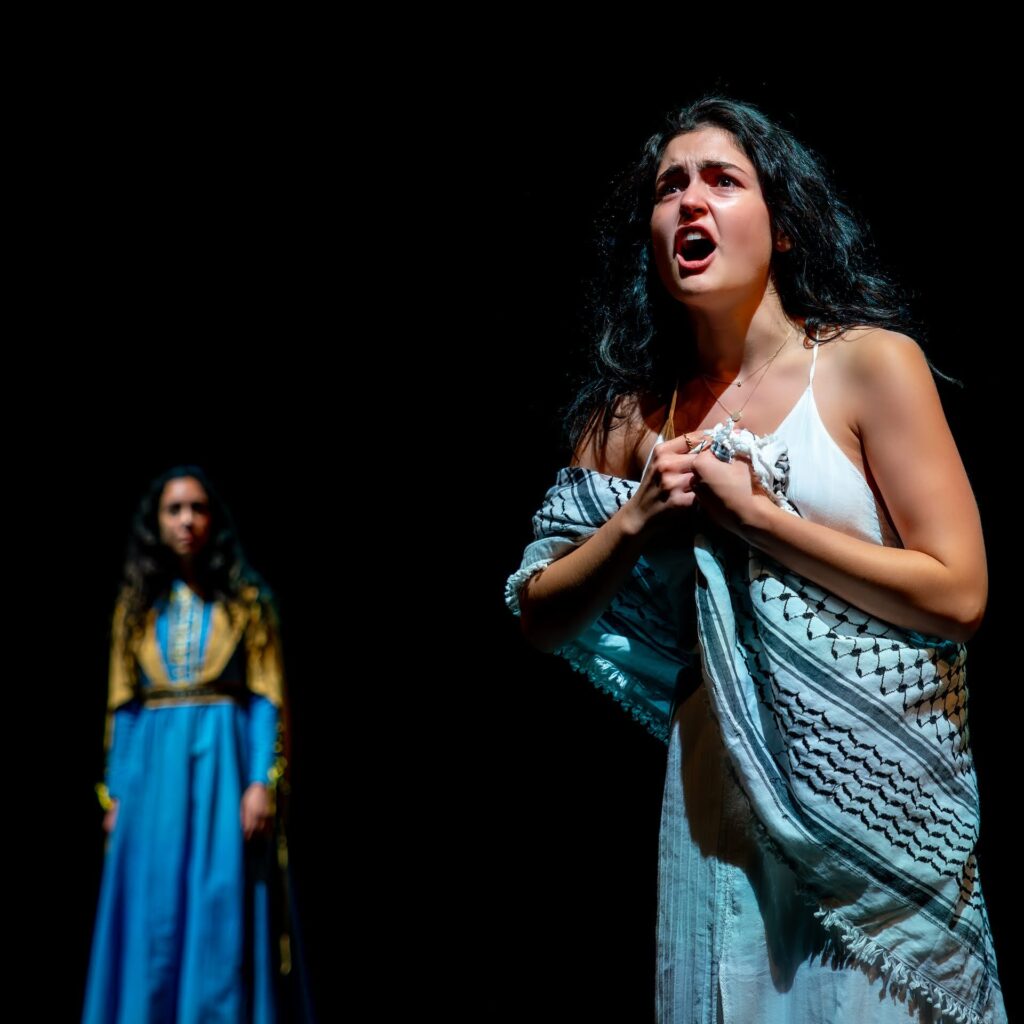
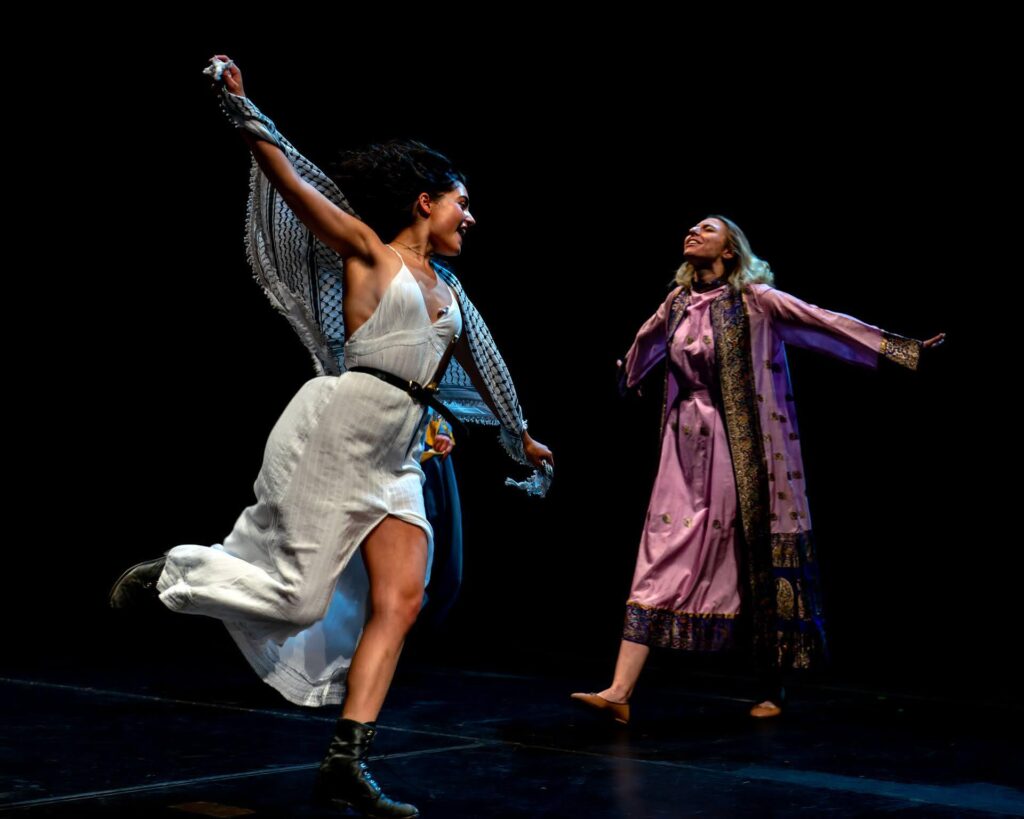
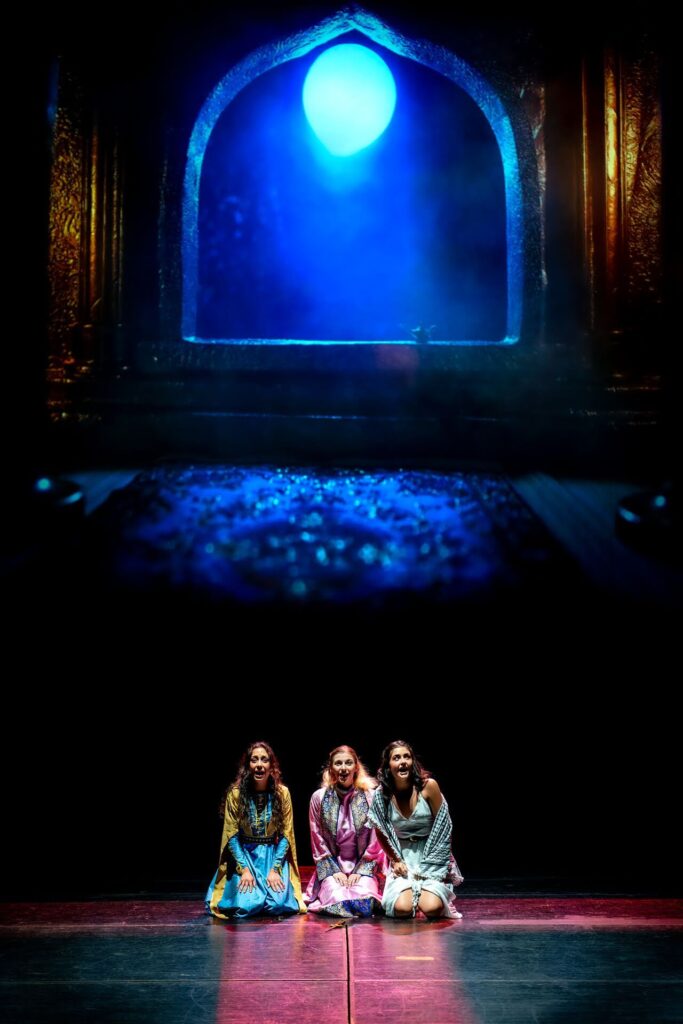
Story written by Autumn Young. Photos by John Ollila.